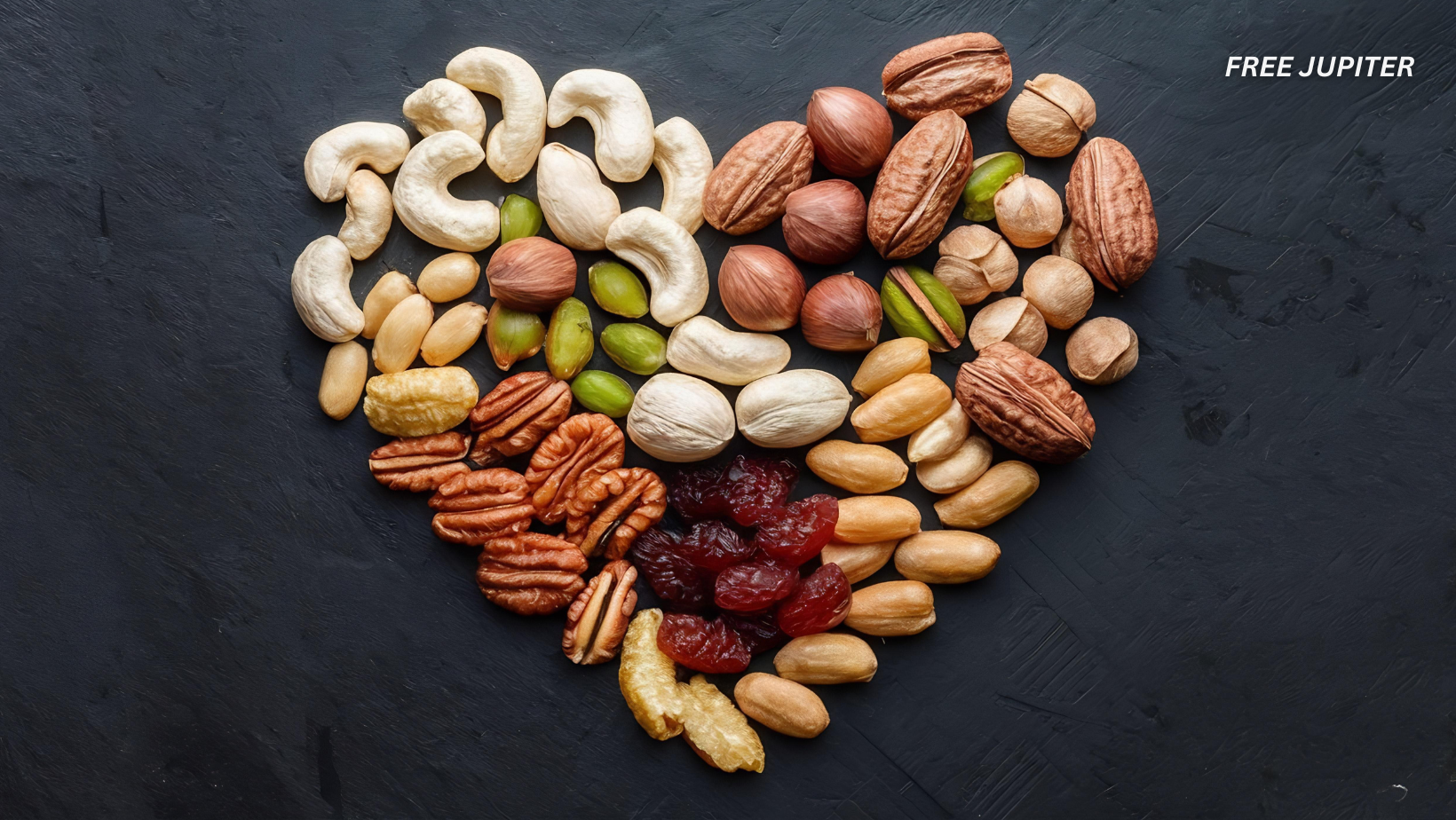Nuts have long been celebrated for their irresistible crunch and impressive nutritional profile. These bite-sized powerhouses are packed with a spectrum of health-promoting nutrients, making them a favorite among health-conscious snackers. Whether enjoyed on their own, sprinkled over salads, or blended into creamy spreads, nuts offer a satisfying and wholesome addition to everyday meals.
Nutritional Highlights of Nuts
A handful of nuts delivers a rich array of essential nutrients. They are brimming with:
- Dietary fiber
- Antioxidants
- Vitamins and minerals
- Healthy unsaturated fats
- Plant-based protein
The unique combination of these nutrients supports a variety of bodily functions. Fiber aids digestion, antioxidants combat oxidative stress, and healthy fats contribute to heart health. Protein helps maintain muscle mass and keeps hunger at bay.
Health Benefits Associated with Nut Consumption
Nuts are more than just a tasty snack. Their regular inclusion in the diet has been linked to numerous health advantages:
- Lower risk of heart disease
- Improved cholesterol levels
- Support for healthy body weight
- Enhanced blood sugar control
- Reduced inflammation
- Protection against cognitive decline
Research has consistently shown that people who consume nuts regularly tend to have better heart health. The unsaturated fats found in nuts help reduce LDL cholesterol and triglyceride levels, while antioxidants such as polyphenols offer cellular protection. Fiber and plant compounds in nuts also promote a healthy gut and may help regulate blood sugar, making them beneficial for people managing diabetes.
Read more: Inflammation Is On Your Plate: 20 Foods That Harm Your Body And 20 That Heal
Incorporating Nuts Into a Balanced Diet
Nuts are versatile and can be enjoyed in countless ways. They can be eaten raw, roasted, or blended into butters. Adding nuts to salads, oatmeal, yogurt, or baked goods is an easy way to boost the nutritional value of meals. When choosing nuts, it is best to opt for unsalted, unflavored varieties to avoid excess sodium and sugar.
Moderation is key, as nuts are calorie-dense. A typical serving is about one ounce, which is roughly a small handful. This amount provides a satisfying snack without overwhelming the daily calorie budget.
The Top 9 Nuts to Include in Your Diet
A variety of nuts can be found on grocery shelves, each offering its own unique combination of nutrients and flavors. The following nine nuts are especially noteworthy for their health benefits:
1. Almonds
Almonds are a popular choice, known for their delicate flavor and crunchy texture. They are an excellent source of vitamin E, magnesium, and fiber. Almonds have been associated with improved cholesterol levels and may help support weight management due to their satiating effect.
2. Pistachios
Pistachios stand out for their vibrant green color and slightly sweet taste. They are rich in antioxidants, vitamin B6, and potassium. Pistachios are also lower in calories compared to many other nuts, making them a smart choice for those watching their weight.
3. Walnuts
Walnuts are easily recognized by their brain-like shape and earthy flavor. They are one of the best plant sources of omega-3 fatty acids, which are essential for heart and brain health. Walnuts have been linked to reduced inflammation and may help protect against cognitive decline.
4. Cashews
Cashews offer a creamy texture and a subtle, buttery flavor. They are high in copper, magnesium, and iron. Cashews can support bone health and immune function, and their mild taste makes them a versatile ingredient in both sweet and savory dishes.
Read more: Dietician Reveals 6 Foods That Fight Chronic Pain Naturally — And 3 To Avoid
5. Pecans
Pecans are prized for their rich, buttery taste and are often featured in desserts. They are loaded with antioxidants and healthy fats. Pecans may help lower LDL cholesterol and support heart health.
6. Macadamia Nuts
Macadamia nuts are known for their smooth texture and delicate flavor. They are higher in monounsaturated fats than most other nuts, which can be beneficial for heart health. However, they are also among the most calorie-dense, so portion control is important.
7. Brazil Nuts
Brazil nuts are a top source of selenium, a mineral essential for thyroid function and immune health. Just one or two Brazil nuts a day can provide the recommended daily intake of selenium. Due to their high selenium content, it is best to enjoy them in moderation.
8. Hazelnuts
Hazelnuts are often used in confections and spreads. They are rich in vitamin E, healthy fats, and antioxidants. Hazelnuts may help reduce inflammation and support cardiovascular health.
9. Peanuts
Although technically legumes, peanuts are commonly grouped with nuts due to their similar nutritional profile. They are high in protein and folate, making them a filling and affordable snack. Peanuts may help support heart health and blood sugar control.
Comparing the Nutritional Value of Popular Nuts
| Nut Type | Calories (per 1.5 oz) | Total Fat (g) | Protein (g) | Notable Nutrients |
|---|---|---|---|---|
| Almonds | 254 | 22.5 | 9.4 | Vitamin E, magnesium |
| Brazil nuts | 279 | 28.2 | 6.1 | Selenium |
| Cashews | 244 | 19.7 | 6.5 | Copper, magnesium |
| Hazelnuts | 275 | 26.5 | 6.4 | Vitamin E |
| Macadamias | 305 | 32.4 | 3.3 | Monounsaturated fats |
| Peanuts | 249 | 21.1 | 10.1 | Folate, protein |
| Pecans | 302 | 31.6 | 4.0 | Antioxidants |
| Pistachios | 243 | 19.6 | 9.1 | Vitamin B6, potassium |
| Walnuts | 278 | 27.7 | 6.5 | Omega-3 fatty acids |
Frequently Asked Questions About Nuts
What is the healthiest way to eat nuts?
Nuts are best consumed in their natural state, without added salt or sugar. Eating them raw or dry-roasted preserves their nutrients. A serving size of about one ounce is recommended, as nuts are calorie-rich.
Which nuts are lowest in calories?
Peanuts and pistachios generally contain fewer calories per serving compared to other nuts. Almonds and hazelnuts also have less saturated fat, making them lighter options for those monitoring fat intake.
Are any nuts considered less healthy?
Macadamia nuts are the most calorie-dense, while Brazil nuts are highest in saturated fats. Due to the high selenium content in Brazil nuts, excessive consumption should be avoided.
Tips for Including Nuts in Your Diet
- Sprinkle chopped nuts over salads, oatmeal, or yogurt for added crunch and nutrition.
- Blend nuts into smoothies for a creamy texture and protein boost.
- Use nut butters as a spread or dip for fruits and vegetables.
- Incorporate nuts into baked goods, such as muffins or energy bars.
Potential Considerations
While nuts provide numerous health benefits, they are also high in calories. Portion control is essential, especially for those watching their weight. Some people may have allergies to certain nuts, so caution should be exercised if food sensitivities are a concern.
Summary
Nuts offer a wealth of nutrients in a convenient, tasty package. Their regular consumption has been associated with improved heart health, better cholesterol profiles, and support for healthy body weight. Each variety brings its own special blend of vitamins, minerals, and beneficial fats. When eaten in moderation and as part of a balanced diet, nuts can be a delicious way to enhance overall well-being.
With their versatility and nutritional power, nuts can easily become a staple in a healthy lifestyle. Whether enjoyed as a snack or incorporated into meals, these nutrient-dense foods are sure to deliver both flavor and health benefits.










